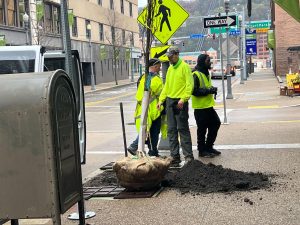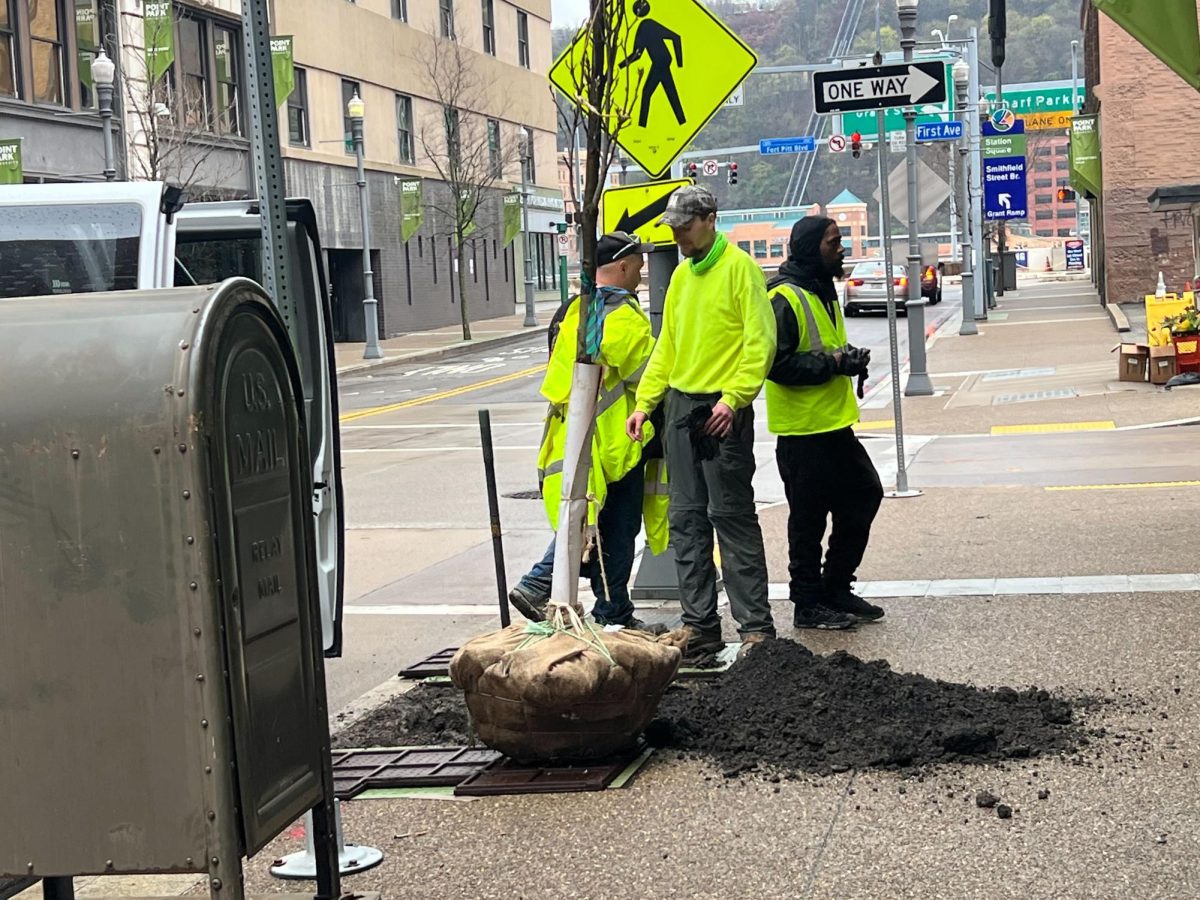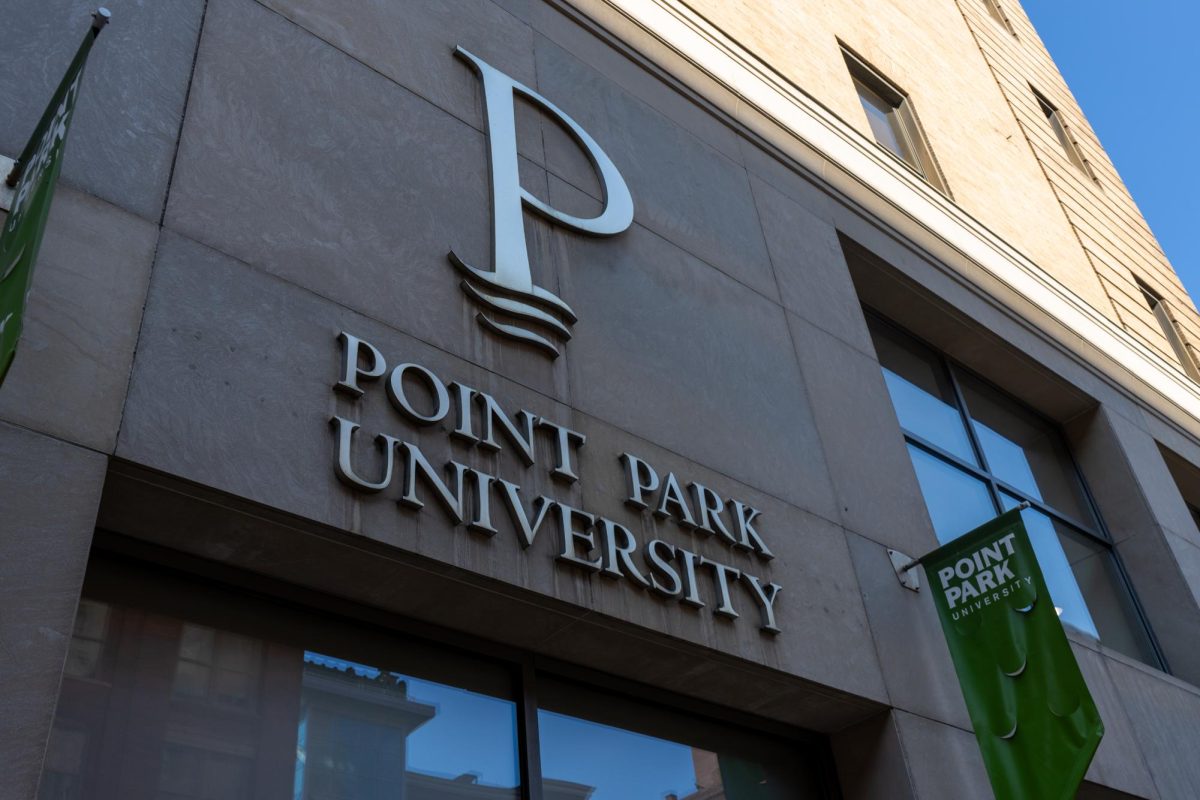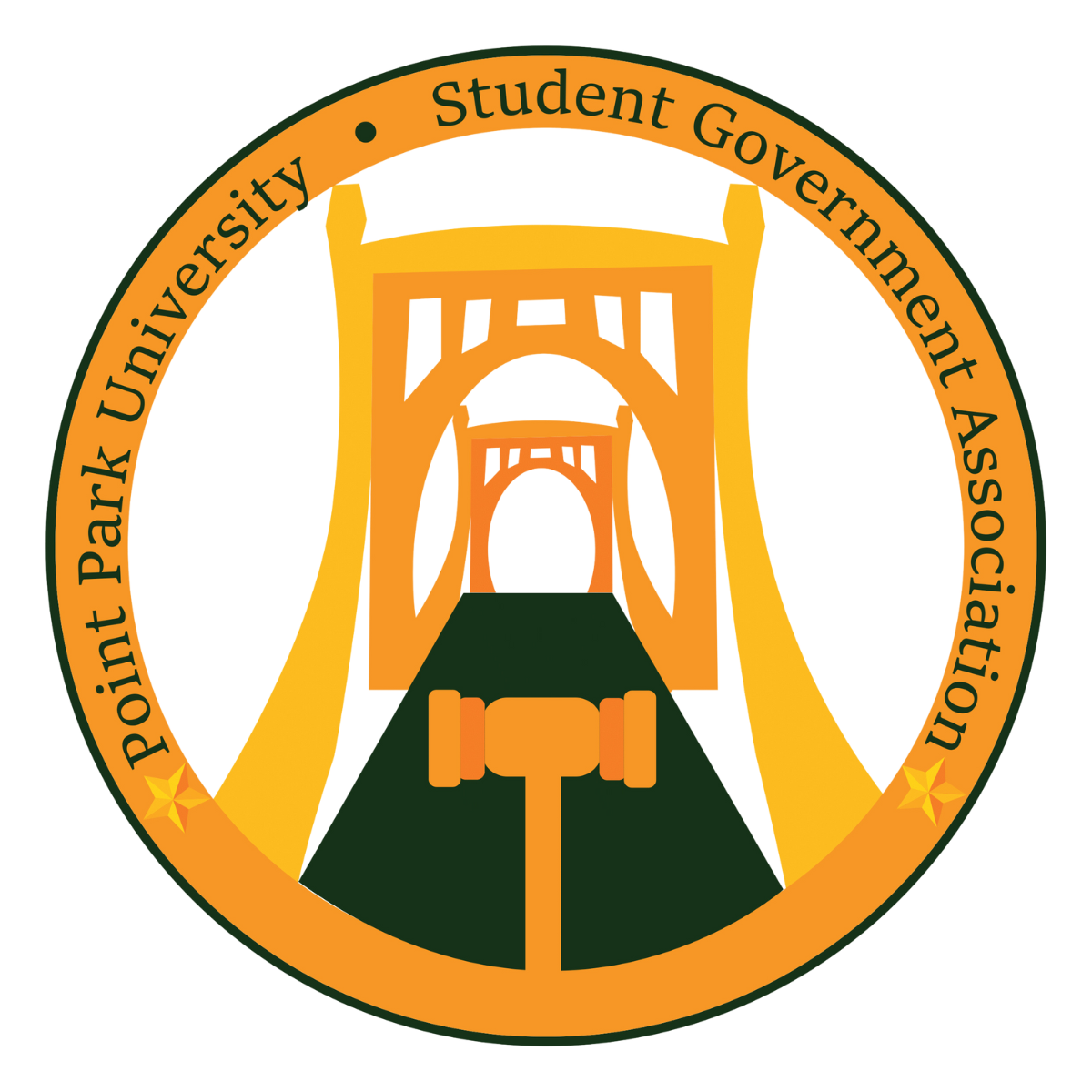
photos by Matt Nemeth
ACLU investigative reporter Curt Guyette discusses the process of his journalistic work during “From Flint to Your Faucet” with Point Park News Service Director Andrew Conte March 15.
When Curt Guyette took a job as an investigative reporter with Michigan’s ACLU branch, there was no way he could have known he would reveal one of the largest social and environmental crises in recent history.
Guyette, the investigative reporter who exposed the drinking water crisis in Flint, Mich. last year, spoke Tuesday, March 15 at Point Park University’s GRW Auditorium at University Center. The event was put on by Point Park’s News Service and was co-sponsored by the Press Club of Western Pennsylvania, the Pittsburgh Black Media Federation and the Women’s Press Club of Pittsburgh.
Andrew Conte, director of the Point Park News Service, hosted the event and interviewed Guyette on stage for the first portion of the evening. Guyette, a University of Pittsburgh graduate, spoke of the path that led him to his current role with ACLU Michigan, explaining how his termination with a “traditional” media outlet came to be a blessing in surprise.
After the city of Detroit was taken over by an emergency manager, Guyette was assigned by ACLU to investigate if any civil liberties were being taken advantage of. It was through these channels that he was initially contacted about the city of Flint, which was similarly being run by an emergency manager.
The emergency manager and city officials for Flint redirected the water source for the city from Lake Huron, the same source Detroit used, to the Flint River. Shortly after the switch, residents began complaining about water purity and rashes developing on their skin. Through the efforts of Guyette’s investigation and tests sent out to Virginia Tech University, it was discovered that some of the town’s residents were exposed to dangerously high levels of water poisoned by lead.
Conte and Guyette focused most of their conversation on the importance of diligent investigative reporting and the differences of reporting for advocacy groups, as opposed to traditional media organizations.
“I think the more of the idea of journalism I bring to the [ACLU] job, we’ll be better off in the long run,” Guyette said when asked how he balanced advocacy versus journalism during the event.
Continuing the theme of investigative reporting for advocacy groups, the event concluded with a panel of local environmental advocates and a journalist joined onstage by Guyette. The focus of the panel was clean drinking water in Pittsburgh and what we can do to improve it.
Kathy Knauer of WESA’s Allegheny Front, Myron Arnowitt of Clean Water Action and Brentin Mock of The Atlantic’s Citylab.com spoke briefly individually and answered some questions from the crowd.
Arnowitt spoke of the similarities between investigation for advocacy groups and investigative journalism.
“There’s a lot of interesting overlap between investigative journalism and what a community organizer does,” Arnowitt said during the panel.
Pressed on the issue of clean drinking water locally by Conte, Arnowitt told the audience that Clean Water Action’s national organization has a motto of, “Put drinking water first,” and noted that the largest threat to clean drinking water in the Pittsburgh area is hydraulic fracturing, more commonly known as “fracking.” Fracking is the process implemented to obtain natural gas by drilling down into the earth and using a high pressure water mixture directed at the shale to release the gas inside. There have been “a couple hundred” reports of unclean water in natural gas drilling areas, according to Arnowitt.
Knauer added her own experience in covering the water sources in and around Pittsburgh.
“Pittsburgh has a history of poor water quality. There’s a lot of bad, dirty water getting to the rivers, and that’s our drinking water,” Knauer said onstage. “We’re now hearing about prescription drugs in the river water because it’s not treated properly.”
Mock, who began his career writing for Pittsburgh City Paper, spoke briefly of the racial and social issues that surround environmental issues.
“You can’t get the full picture of an environmental issue until you learn the racial implications of it,” said Mock during the panel.
Both Mock and Guyette discussed the obstacles that investigative journalists have in the field, especially when covering stories specific to environmental issues. Mock told students to learn to adapt and mentioned tools available to journalists writing about environmental issues, such as EJSCREEN, a mapping tool developed for use by the Environmental Protection Agency.
“As long as journalism students keep coming up with models and changing, the market will be rewarding,” Mock said.
Guyette also encouraged student and amateur journalists to stay assiduous in their work, telling them not to get discouraged if their articles don’t get picked up.
“There are going to be obstacles in your path, and you have to find creative ways around them,” Guyette said. “In Flint, it was doing our own tests.”
Point Park University used the opportunity of the event to formally announce the creation of the new environmental journalism degree the school has created. The program, made possible through a grant from the Heinz Endowments, will begin in the fall semester.
Andrew McElwaine, vice president for Sustainability and the Environment for the Heinz Endowments, spoke momentarily about the new degree program.
“Environmental issues will most likely remain at the forefront of not only local, but national and international headlines,” McElwaine said before the crowd at GRW auditorium. “Environmental journalism, and journalism in general, deserves far more concern and attention.”
McElwaine encouraged the crowd, “Journalism is not dead.”

Andrew McElwaine, The Heinz Endowments' Vice President for Sustainability and the Environment, speaks after a formal announcement of Point Park's upcoming environmental journalism program by Thom Baggerman (right), Chair of the School of Communication. The Heinz Endowments contributed by offering a grant to Point Park to help make the new program a reality. According to the university's press release, the program will be introduced Fall 2016, feature an annual "professional journalist-in-residence," and will include a website and newsletter featuring student work.

Brentin Mock, a staff writer for The Atlantic's Citylab, speaks during the panel discussion at From Flint to Your Faucet. Also featured in the panel: Myron Arnowitt, Pennsylvania State Director for Clean Water Action (left), Curt Guyette, investigative reporter for ACLU (right), and Kathy Knauer, Executive Producer for Allegheny Front (far right). The panel discussion was preceded by an interview with Guyette about his journalistic work that covered the water pollution in Flint, Michigan.











